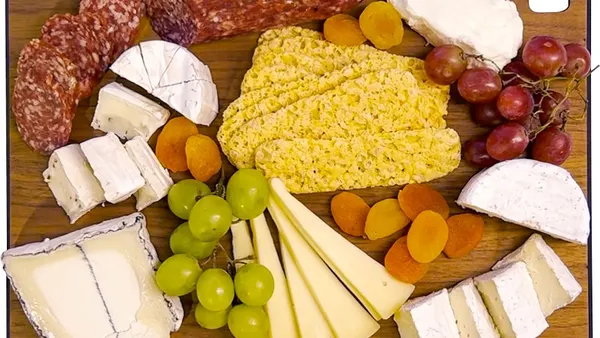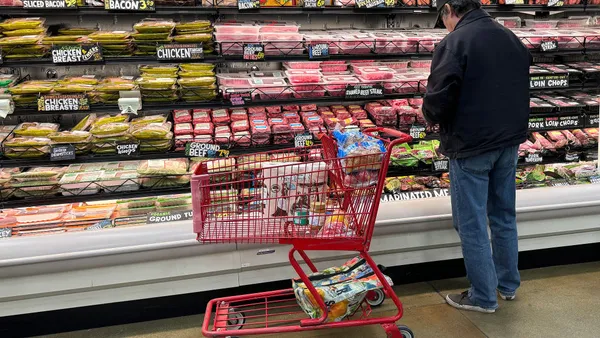Dive Brief:
- The Trump administration has threatened to impose more tariffs on Mexican imports, which could drive up produce and other food costs at grocery stores, The Wall Street Journal reported.
- Last week, President Trump said he would impose a 5% tariff on all Mexican imports starting June 10, and the tariff could increase to 25% by October if Mexico doesn’t limit the flow of migrants at the U.S.-Mexico border.
- According to government data from 2018 cited by the WSJ, Mexico supplied 99% of imported raspberries and strawberries and more than 80% of the tomatoes and avocados brought into the U.S.
Dive Insight:
With margins already under attack, new tariffs on imported produce could spell financial strain for grocery retailers and higher costs for shoppers. Grocers have already had to deal with a 17.5% duty on Mexican tomatoes, which was added in May.
The U.S. imports more than $12 billion of fruits and vegetables from Mexico each year, according to U.S. Department of Agriculture data, and Mexican imports enable U.S. consumers to have access to produce like avocados, mangoes and tomatoes year-round.
Summer is peak growing and harvesting season for some of these items in the U.S., including tomatoes and avocados, so a tariff may not be felt immediately in the grocery store while there's a homegrown supply.
Growing season aside, if the tariffs do go into effect, grocers won’t have much choice but to adjust, said Richard Owen, vice president for the Produce Marketing Association. A 5% increase on imported produce could be absorbed, but if tariffs reach the 25% threshold, there is not enough elasticity in the market to absorb that without passing along the price to the consumer.
"It will vary by product. Some products have more margin than others," Owen told Grocery Dive.
Although the possibility of tariffs is concerning, as of now they are still just a threat. The United Fresh Produce Association released a statement last week from president and CEO Tom Stenzel with a reminder that "industry members should know that no tariffs are in place, and commerce today should not be affected."
Still, United Fresh has come out strong against the possible tariffs, saying that Trump’s proposal is a misguided concept. "Fortunately, the business community, agriculture and national leaders from both political parties have expressed strong opposition to this step," Stenzel said in the statement.
The Food Marketing Institute has also taken a stance against the tariffs, saying that imposing escalating tariffs on Mexico is a disruptive tactic that distracts from the challenges at the border.
"Tariffs are a tax on American consumers; they are the ones who will feel the impact of this move," said Andy Harig, FMI’s senior director of sustainability, tax and trade, in a statement emailed to Grocery Dive.
President Trump’s proposal to add tariffs comes amid talks to negotiate a new North American trade deal, with business organizations saying his threats could derail progress. Trump has also imposed a 25% tariff on $200 billion worth of goods from China — a move that business leaders and analysts say will increase prices for consumers.









